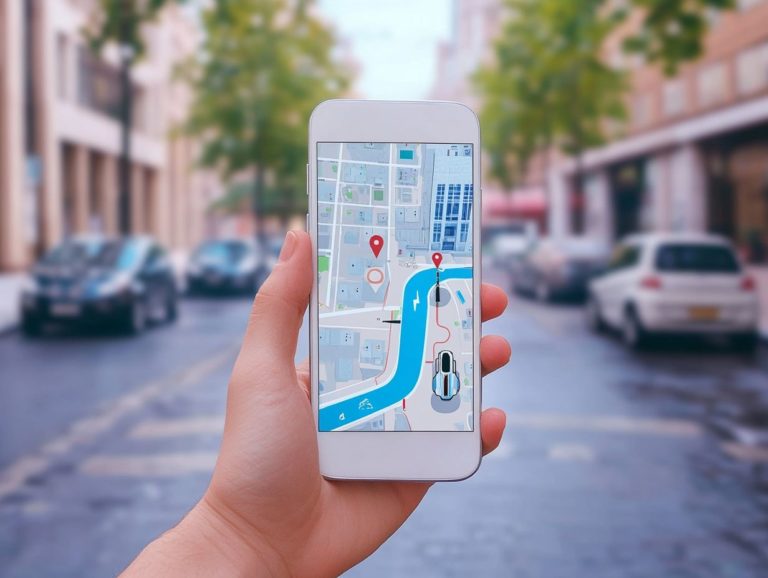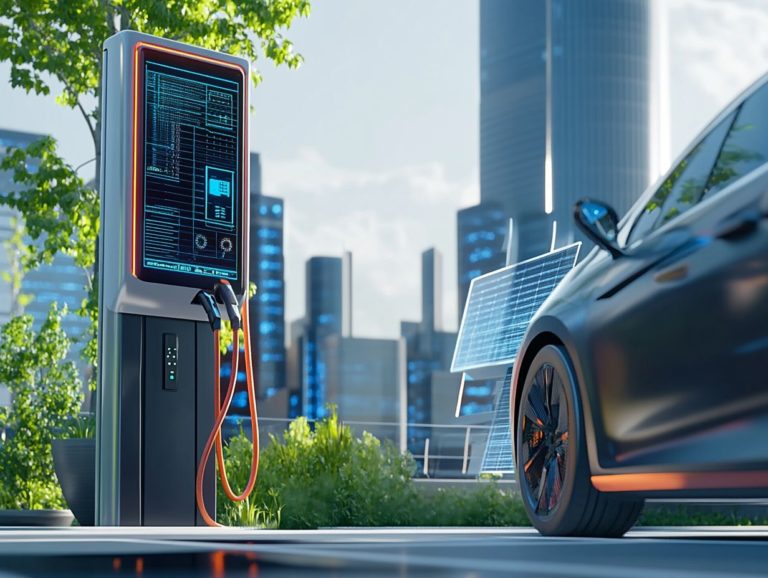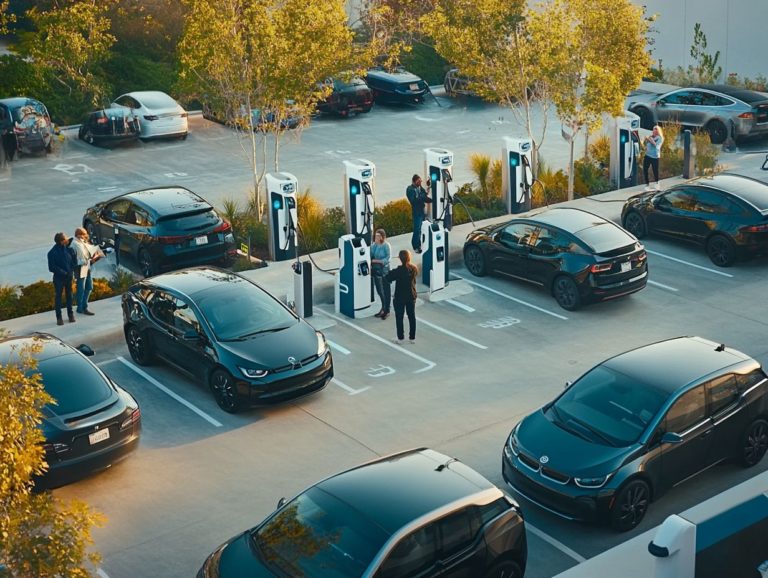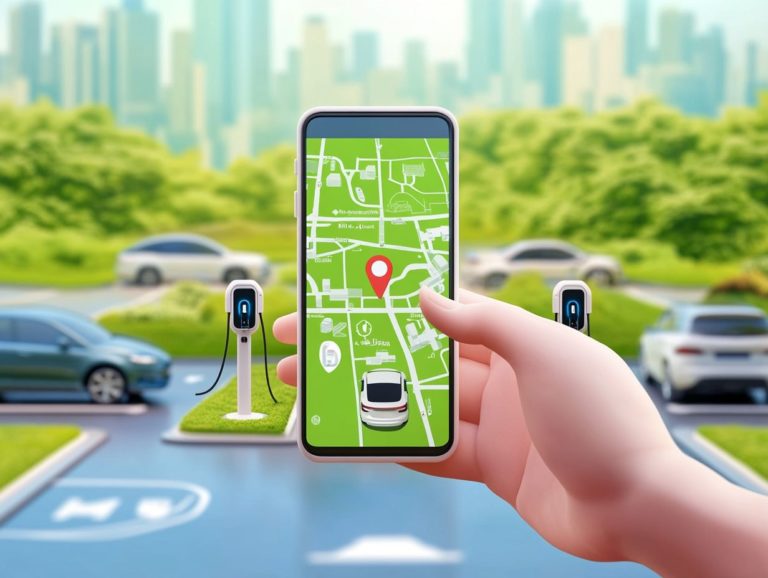How to Maximize Your EV Charging Experience
Electric vehicles (EVs) are changing how we think about transportation. However, understanding how to charge them can feel overwhelming.
This article breaks down the different types of EV charging. You’ll learn tips to make your charging experience smoother and more effective.
Whether preparing for a road trip or optimizing your home charger, you ll discover useful strategies and insights here.
Read on to take your EV journey to the next level!
Contents
Key Takeaways:
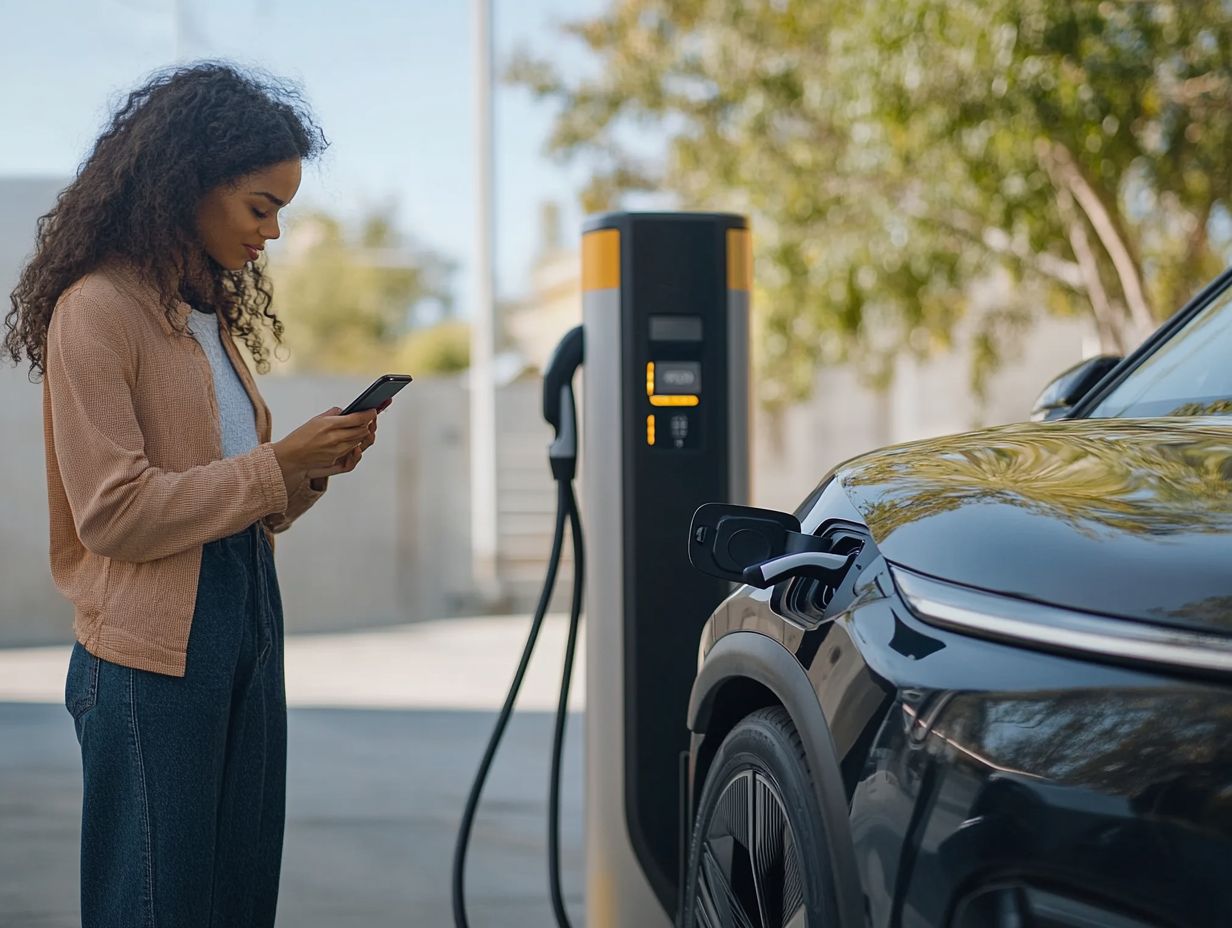
- Understanding the types of EV charging is key to improving your experience.
- Factors like weather, battery size, and charging speed can affect how efficiently you charge.
- Choosing the right charging station and following best practices can enhance your overall charging experience.
Understanding EV Charging
Knowing about EV charging is vital for current and future electric vehicle owners. It involves learning about the various methods that provide an efficient charging experience.
Smart charging solutions and more charging stations are emerging. These advancements ease range anxiety and improve your experience in the EV community.
Types of EV Charging and How They Work
There are several EV charging methods, each designed to optimize speed and efficiency for your needs. Whether you’re charging at home or using public stations with DC fast chargers, understanding these options is essential.
Level 1 chargers plug into standard home outlets. They offer a slow but convenient option for overnight charging, adding about 4-5 miles of range per hour. Conversely, Level 2 chargers, often found in public areas, can provide up to 25 miles of range each hour, making them great for longer stops.
DC fast chargers significantly reduce charging time by delivering high voltage directly to your battery. This allows your electric vehicle to reach around 80% charge in just 30 minutes.
With improvements in battery technology like better temperature control and higher energy density charging methods are becoming more efficient as the EV landscape evolves.
Factors that Affect EV Charging
Several factors play a crucial role in determining the efficiency and effectiveness of EV charging. For instance, weather conditions can greatly influence the charging process.
Your vehicle’s battery capacity is also important. By optimizing these aspects, you can maximize your charging speed and minimize energy costs.
Weather, Battery Capacity, and Charging Speed
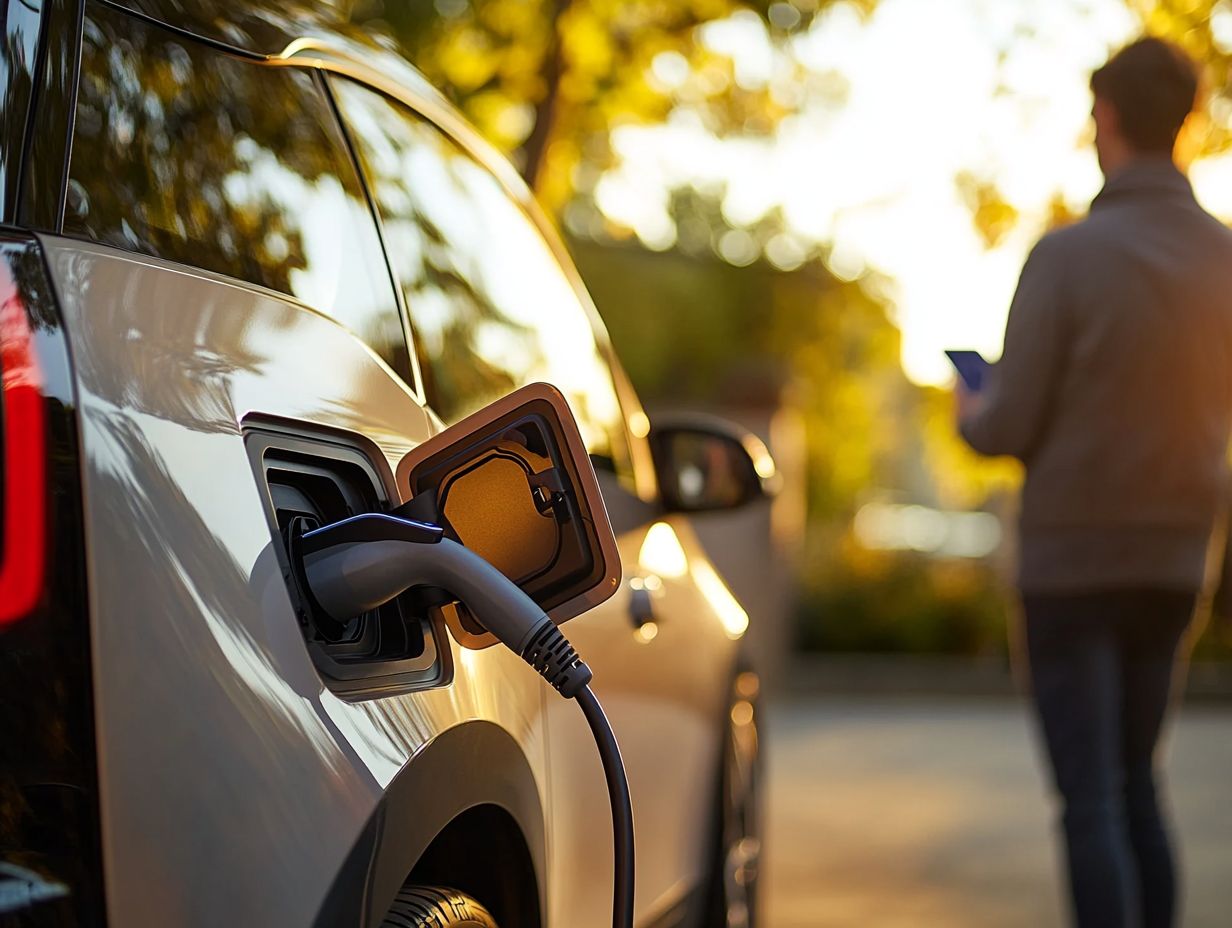
Weather conditions significantly influence the charging speed of your electric vehicle. Extreme temperatures can reduce battery capacity and charging efficiency.
Both hot and cold weather impact the performance and longevity of your batteries. In colder climates, battery chemistry slows down, leading to decreased output and longer charging times. In contrast, excessive heat can cause overheating, potentially damaging battery cells and shortening their lifespan.
In this context, energy management systems are essential. They regulate the charging process by adjusting settings and monitoring temperature. By optimizing these elements, these systems enhance your charging experience, ensuring that your batteries operate efficiently, regardless of the weather.
Optimizing Your EV Charging Experience
To elevate your EV charging experience, it’s essential to embrace a range of best practices and charging strategies. These insights will not only boost how well your EV uses energy but also create a seamless charging process that aligns perfectly with your daily habits and lifestyle.
Best Practices for Charging Efficiency
Using smart charging habits can lower your energy costs and extend your battery life, ensuring your electric vehicle (EV) performs optimally over time.
Set a routine that favors slow, steady charging. Relying on fast charging can take a toll on your battery’s health in the long run. By considering off-peak hours for charging, you can capitalize on lower electricity rates, making it a more cost-effective choice.
Monitor your energy consumption habits, including avoiding unnecessary use of high-powered accessories while charging, to further enhance efficiency. By utilizing smart charging solutions and timers, you can automate the process and learn how to plan a road trip with EV charging, ensuring your EV charges during the most economical times without compromising battery longevity.
Choosing the Right Charging Station
Choosing the right charging station is essential for you as an electric vehicle (EV) owner. Your selection can greatly impact charging speed, convenience, and your overall satisfaction with the charging experience.
Factors to Consider and Types of Charging Stations
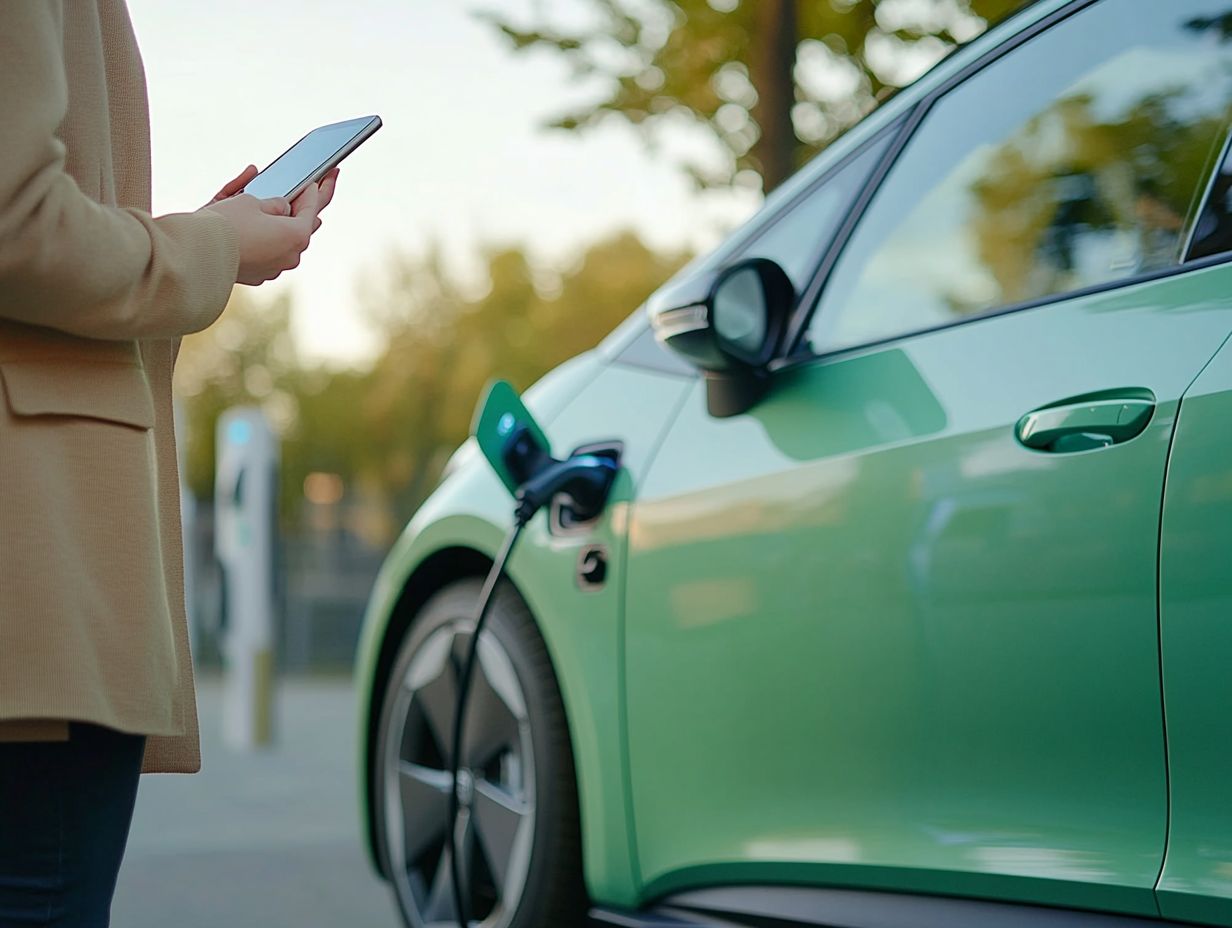
When selecting a charging station, consider several key factors, including the different types of charging stations available, their compatibility with your electric vehicle, and the reputation of the energy provider regarding service reliability.
As an electric vehicle owner, you’ll typically encounter three primary types of charging stations: Level 1, Level 2, and DC fast chargers. Level 1 stations utilize standard household outlets, making them perfect for overnight charging at home ideal for those with less demanding daily ranges. Level 2 chargers, commonly found in public areas, strike a balance between speed and accessibility, catering to various EV models while you enjoy a day out. On the other hand, DC fast chargers offer rapid charging, a life-saver for long-distance travelers in need of a quick top-up.
When assessing your charging network options, evaluate the availability of each station type and consider the overall customer experience. Look for wait times, ease of access, and user-friendly interfaces, ensuring that the charging solution you choose seamlessly integrates into your EV lifestyle.
Maximizing EV Range with Charging Strategies
To maximize the range of your electric vehicle (EV), engage in strategic planning regarding your charging habits. Utilizing navigation apps intelligently will allow you to efficiently identify the most efficient EV charging strategies along your route, ensuring a seamless journey.
Planning for Longer Trips and Efficient Charging on the Go
When planning longer trips with your electric vehicle (EV), establishing a solid charging strategy is crucial. This means identifying reliable charging stations and optimizing charging efficiency. To ensure a smooth transition, consider reading about how to prepare for EV ownership transition to put any worries about range anxiety to rest.
Take the time to research and map out the charging stations along your route. Pay attention to the types of chargers available and their locations. This prep helps you dodge delays from long waits or broken chargers.
Considering the time required to recharge can significantly affect your travel plans, so it’s wise to plan your rest stops accordingly. Utilizing apps that provide real-time availability of stations can also enhance your efficiency, allowing you to make on-the-go adjustments as needed.
By being proactive with these strategies, you’ll feel more confident and prepared as you set off on your longer adventures. Get ready for smooth travels with these must-know strategies!
Frequently Asked Questions
Here are some common questions that electric vehicle owners often have:
- What are the benefits of using a Level 2 charger?
- How do I find charging stations while on the road?
- What should I do if a charging station is out of service?
What is the best way to maximize my EV charging experience?
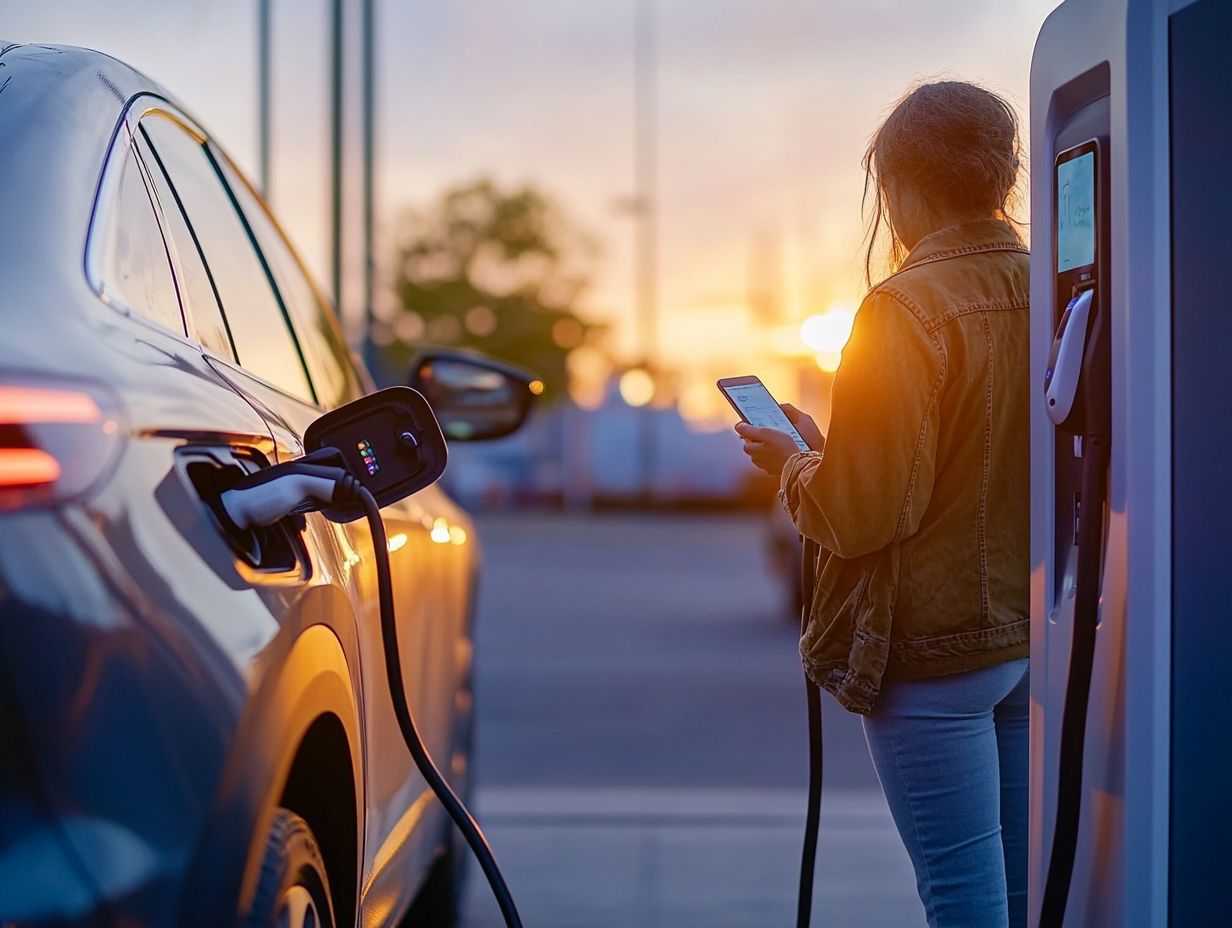
To maximize your EV charging experience, plan ahead and utilize public charging stations. For new EV owners, exploring the best charging solutions ensures you have enough charge to reach your destination and eliminates range anxiety.
How can I find public charging stations for my EV?
Several resources can help you find public charging stations, including websites and mobile apps. Don t wait! Start exploring charging options today!
Do I need to purchase a special charger for my EV?
It depends on your EV model and charging needs. While some EVs come with a standard charger for regular outlets, others may require a specialized charging station for quicker charging. Always check with your EV manufacturer for specific recommendations.
Can I charge my EV at home?
Absolutely! You can charge your EV at home by installing a charging station or using a regular outlet. It s best to consult a licensed electrician for proper installation to meet your EV’s requirements.
How long does it take to fully charge an EV?
Charging time varies based on battery size and the type of charging station used. On average, it takes 4-8 hours for a full charge using a Level 2 charging station, which is a faster, more efficient option compared to standard outlets.
Is it safe to leave my EV charging overnight?
Yes, it s safe to leave your EV charging overnight. EVs have built-in safety features to prevent overcharging. Proper maintenance of your charging equipment is essential for optimal safety.

